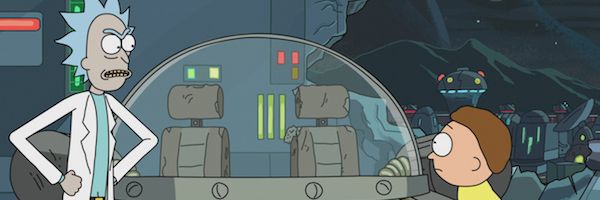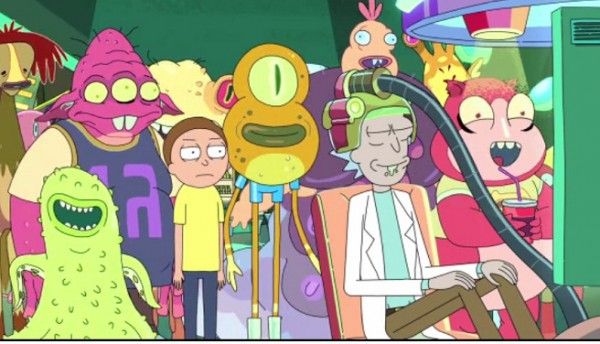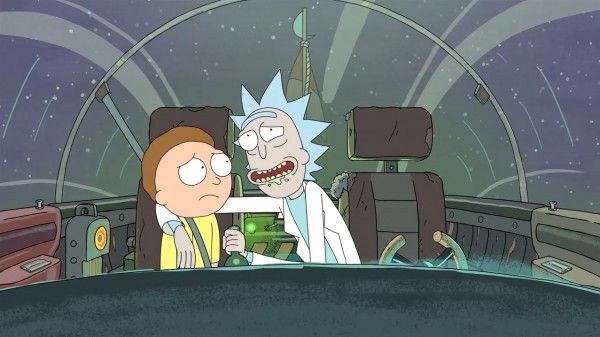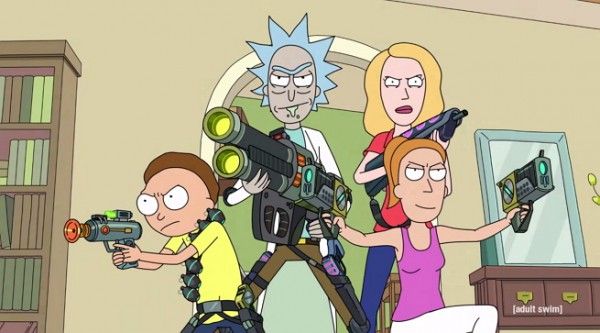The pickled relationship between the titular grandfather-grandson pair at the center of Rick and Morty hinges on tolerance, for both the ignorantly uninformed and the brazenly, furiously condescending. There's no sentimentality between Rick, a time-and-space-traveling mad scientist, and his moral dullard of a grandson, Morty (both of whom are voiced by co-creator Justin Roiland), even when death is a very real possibility for either character. And there's a constant sense throughout the series that Morty's more emotionally driven philosophy of life is, well, stupid, at least to the point that Rick almost always ends up in the right at the end of any given one of their innumerable conversations or arguments. This is part of what gives the first season of this cult show, as well as Rick and Morty Season 2, a certain bitter aftertaste and a general air of undue cynicism, both of which clash with the exuberant animation style and imaginative plotting that denote it.
Now, perhaps this is reading too much into Roiland and co-creator Dan Harmon's series, which features a congenial mutant cloud that sings like David Bowie and names itself Fart in Season 2, but that doesn't quite scan. The sense of humor being practiced here is dark, occasionally even pitch-black in tone, and the writing often toys with major philosophical and scientific conundrums and concepts that would make about as much sense to children under 13 as EDM does to people over 70. In short, the show skews adolescent and adult far more times than it does appeal to children -- this is, after all, an Adult Swim joint. And like quite a lot of Adult Swim's programming, the character design and vibrantly colorful landscapes are the chief draw of the series, with the animators and art department showing a generous gift for creating detailed monsters and creatures that often talk with the cadence of a seasoned character actor; not for nothing have David Cross, John Oliver, Alfred Molina, Dana Carvey, and Spongebob Squarepants himself Tom Kenny contributed their vocal talents to Harmon and Roiland's series.
The bigger issue is that Rick and Morty is ultimately more amusing than actually funny, stuffed with one-liners, quick, barbed exchanges, and awkward grumbles, groans, and screams. Intermittently, the writers hit on an especially humorous scenario, such as in "Mortynight Run," the second episode of Season 2, when Morty's father, Jerry (Chris Parnell), is stored at a Jerry daycare in an alternate dimension. More times than not, however, the writing is more interested in being clever or outlandish, most prominently exemplified in Rick's endless debasements aimed toward Morty, Jerry, and, to a lesser extent, Beth (Sarah Chalke), his daughter and Morty's mom, who is a veterinarian surgeon specializing in horses. This focus on great taunts and zingers makes Rick and Morty feel like the dream project of the smart kid in high school who got beat up but always had a great comeback, but the subtle juvenilia of such a mindset hinders what is otherwise an entertaining, visually wondrous program.
★★★ Good — Proceed with cautious optimism




